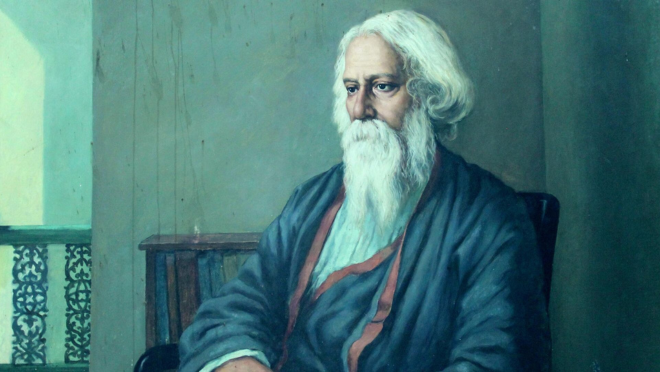Rabindranath Tagore’s 84th death anniversary: Reflecting on his final days
Rabindranath Tagore’s 84th death anniversary: Reflecting on his final days

The year was 1941. The Second World War was raging on, and the sun was setting on British colonial rule. But within the peaceful confines of Jorasanko Thakurbari in Calcutta, another sun was setting rather quietly. Rabindranath Tagore, the first non-European Nobel laureate, poet of Bengal, was nearing the end of his journey.
On this day in 1941 (22 Srabon 1348 in the Bengali calendar), Tagore passed away at the age of 80. He was ill, rather gravely, diagnosed with severe uraemia and a blocked urinary bladder. He died due to post-surgery complications.
On his 84th death anniversary, we remember gurudev with utmost respect and profound love.
A mind still ablaze
Though his body was failing him, Tagore’s mind remained luminous. Between 1937 and 1941, he suffered multiple health crises—most notably in 1940 and again in 1941. But in moments of reprieve, he continued to write with the fervour of a man who knew he had little time left.
Among the works born during this final stretch were his last poem and his last essay—both infused with his lifelong spiritual questioning and a quiet acceptance of mortality. His final essay, “Crisis in Civilization,” was delivered in written form on his 80th birthday. The world he once imagined as moving toward unity and enlightenment now appeared fractured by greed, fascism, and the devastation of war. Yet even as he expressed his heartbreak in his work, he refused to surrender to despair.
“I had at one time believed that the springs of civilization would issue out of the heart of Europe,” he wrote. “But today, when I am about to leave the world, I find that the civilisation of Europe reveals itself as a cruel and soulless machine.” And yet, he ended not in bitterness but in hope—for the East, for the youth, for the future.
The poet’s final canvas
Despite persistent illness, Tagore continued to write until the very end. His last poem, dictated from his sickbed, captures the quiet grandeur of departure. It is as though he saw death not as an end but a familiar companion—perhaps even a muse.
“When I go from hence let this be my parting word…” he had written years earlier in Gitanjali, and now, those words returned like echoes. In his final verses, he invited the end with calm dignity.
What makes his final days more remarkable is that he was not just a witness to history—he was its conscience. The Second World War raged on, British colonial rule persisted with a tightening grip, and India’s independence still lay ahead. Yet even while confined to his home, Tagore wrote with the clarity of a man who could still see the shape of history unfolding.
In the stillness of Jorasanko
The poems from the last stage of his life, faithfully recorded by Rani Chanda, are illustrative of his intrusive thoughts about the fundamental questions of life. But his sense of humor was intact. On 27 July, he joked, “Doctors are in deep trouble over my condition. They are upset as they can’t find anything objectionable about my heart, my lungs. How can they treat a patient who has no illness?”
Tagore died in the same house where he was born—Jorasanko Thakurbari—surrounded by his family and disciples. As the news of his death spread, Bengal came to a standstill. Streets filled with mourners. Boats on the Ganges stood still. Shops shuttered in reverence. In Santiniketan, the institution he had built with such love, students and teachers alike wept and sang his songs as the sun set.
Yet even in death, he left a living legacy. His music, poetry, and philosophy continued to pulse through the veins of a new nation. When India and Bangladesh sought words to express their identity, they found them in Tagore’s songs—Jana Gana Mana and Amar Shonar Bangla—as their national anthem.
And Tagore lives on
Eighty-four years have passed, but the presence of Rabindranath Tagore still looms large over Bengal and beyond. His final works remain some of the most intimate and fragile.
In a world once again wrestling with war, displacement, and spiritual confusion, perhaps it is time we return to the wisdom of Tagore, who believed in the unity of humankind.
Eighty four years have passed since his death, but Tagore will never fade away. He lives on—in life and death.


